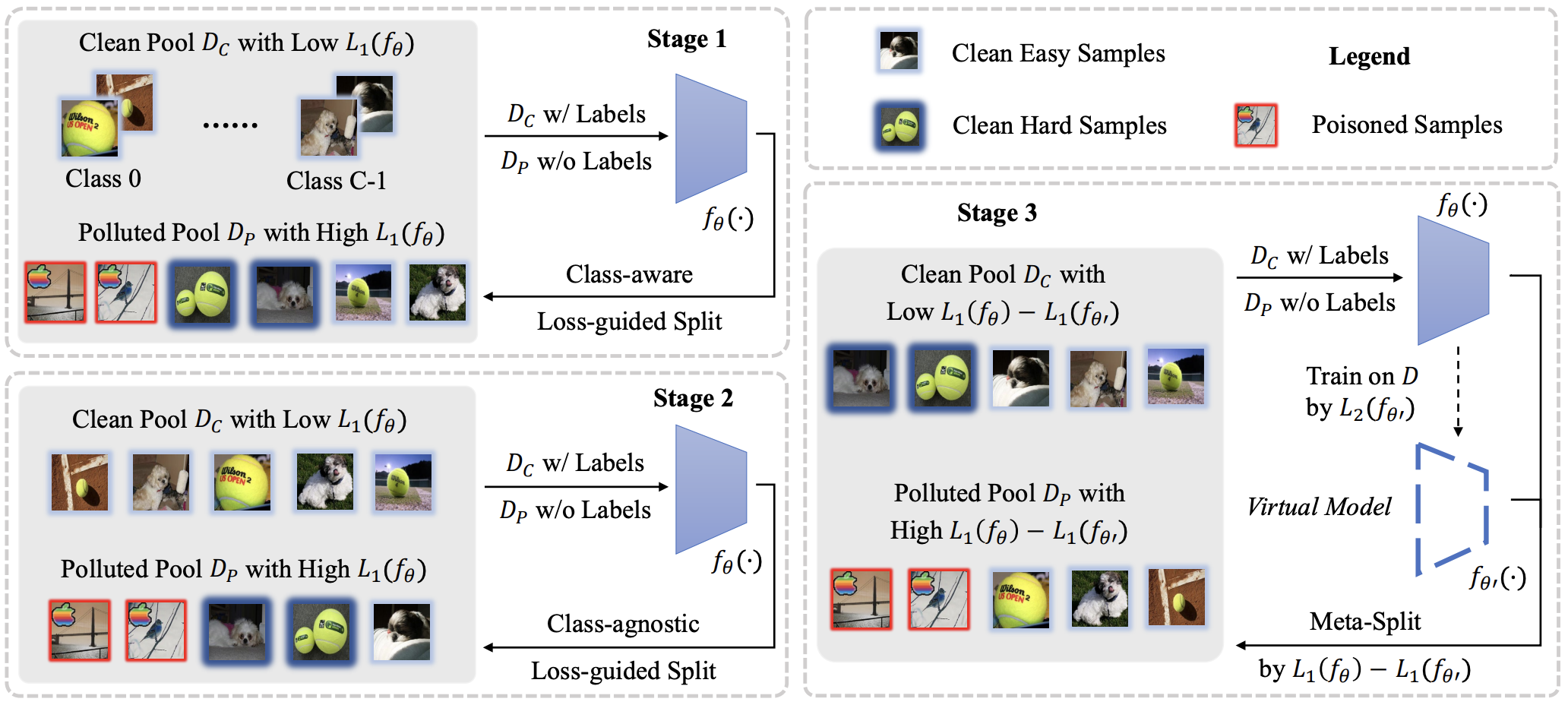Backdoor Defense via Adaptively Splitting Poisoned Dataset
Backdoor defenses have been studied to alleviate the threat of deep neural networks (DNNs) being backdoor attacked and thus maliciously altered. Since DNNs usually adopt some external training data from an untrusted third party, a robust backdoor defense strategy during the training stage is of importance. We argue that the core of training-time defense is to select poisoned samples and to handle them properly. In this work, we summarize the training-time defenses from a unified framework as splitting the poisoned dataset into two data pools. Under our framework, we propose an adaptively splitting dataset-based defense (ASD). Concretely, we apply loss-guided split and meta-learning-inspired split to dynamically update two data pools. With the split clean data pool and polluted data pool, ASD successfully defends against backdoor attacks during training. Extensive experiments on multiple benchmark datasets and DNN models against six state-of-the-art backdoor attacks demonstrate the superiority of our ASD. Our code is available at https://github.com/KuofengGao/ASD.
PDF Abstract CVPR 2023 PDF CVPR 2023 Abstract


 CIFAR-10
CIFAR-10
 ImageNet
ImageNet